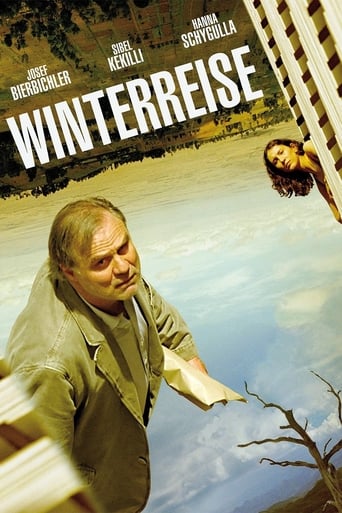

Just when you hoped to escape heavy-handed German pretentiousness it sneaks up on you, hidden in highly metaphorical intonations of Schubert's great song cycle "Winterreise", which accompanies Josef Bierbichler's (inner) journey from wintry Bavaria to arid Kenya, from captivating mental depression to liberation.But for most of the time, despite Kekilli's wooden turn and some other positively eccentric acting in the supporting roles, it's a decent enough pic because Bierbichler stems it on his broad shoulders. He offers a real tour-de-force performance, aided by the accentuated direction and camera-work.It could've been so much better without the arty touches of the later stages.6 out of 10 phantom suns
... View MoreNot what you'd expect from a film about manic depression, eh? But somehow it manages to pull it off, by showing Beirbichler's character Franz (you might recognize Beirbichler as a farmer in Winterschlaefers) coming to grips and transcending his condition, which is making life very difficult for his family members and himself. (Although the ending is not exactly happy in any traditional sense) The film provides Beirbichler an excellent chance to show the broad range of his dramatic ability in the volatile mental state of Franz (his character in Winterschlaefers was much more unidimensional).I also thought of Winterreise as a metaphor for the old, relaxed West (mostly Western Europe), resting on the laurels of past glory and achievement vs. a much more vibrant up-and-coming rest of the world. Not a very comfortable metaphor for those of us living in the West, but quite possibly a useful one.Look out for the hard-driving tortured score (which includes more than just pieces of Franz Schubert's eponymous Lieder cycle).9 out of 10 (not for the faint of heart)
... View More